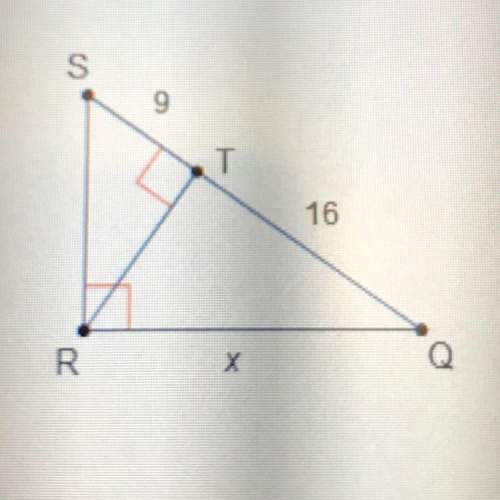Name the property:
(4 • 5)• 3 = 4• (5 • 3)
here are the options:
A. Commutative Proper...

Mathematics, 27.01.2021 23:20 erykp17
Name the property:
(4 • 5)• 3 = 4• (5 • 3)
here are the options:
A. Commutative Property of Addition
B. Commutative Property of Multiplication
C. Associative Property of Addition
D. Associative Property of Multiplication
E. Additive Identity Property
F. Identity Property of Multiplication G. Multiplication Property of Zero
H. Inverse Property of Multiplication

Answers: 1


Other questions on the subject: Mathematics

Mathematics, 21.06.2019 12:30, BigDaddy1220
Autility company burns coal to generate electricity. the cost c(p), (in dollars) of removing p percent of the some stack pollutants is given by c(p)= 85000p/100-p a) find the cost to remove 30% of the pollutant b) find where the function is undefined
Answers: 3

Mathematics, 21.06.2019 17:00, theodoredenetz8316
Adifferent website gives the cost for the first train as £56.88 and the second train as £20.11 with a £9.50 charge for cycle storage for the whole trip. how much would the journey cost you?
Answers: 1

Mathematics, 21.06.2019 18:30, gabrielaaaa1323
At the olympic games, many events have several rounds of competition. one of these events is the men's 100-meter backstroke. the upper dot plot shows the times (in seconds) of the top 8 finishers in the final round of the 2012 olympics. the lower dot plot shows the times of the same 8 swimmers, but in the semifinal round. which pieces of information can be gathered from these dot plots? (remember that lower swim times are faster.) choose all answers that apply: a: the swimmers had faster times on average in the final round. b: the times in the final round vary noticeably more than the times in the semifinal round. c: none of the above.
Answers: 2

Mathematics, 21.06.2019 21:30, amesha62
In a test for esp (extrasensory perception), a subject is told that cards only the experimenter can see contain either a star, a circle, a wave, or a square. as the experimenter looks at each of 20 cards in turn, the subject names the shape on the card. a subject who is just guessing has probability 0.25 of guessing correctly on each card. a. the count of correct guesses in 20 cards has a binomial distribution. what are n and p? b. what is the mean number of correct guesses in 20 cards for subjects who are just guessing? c. what is the probability of exactly 5 correct guesses in 20 cards if a subject is just guessing?
Answers: 1
You know the right answer?
Questions in other subjects:


Mathematics, 23.10.2020 22:00


History, 23.10.2020 22:00





Social Studies, 23.10.2020 22:00





